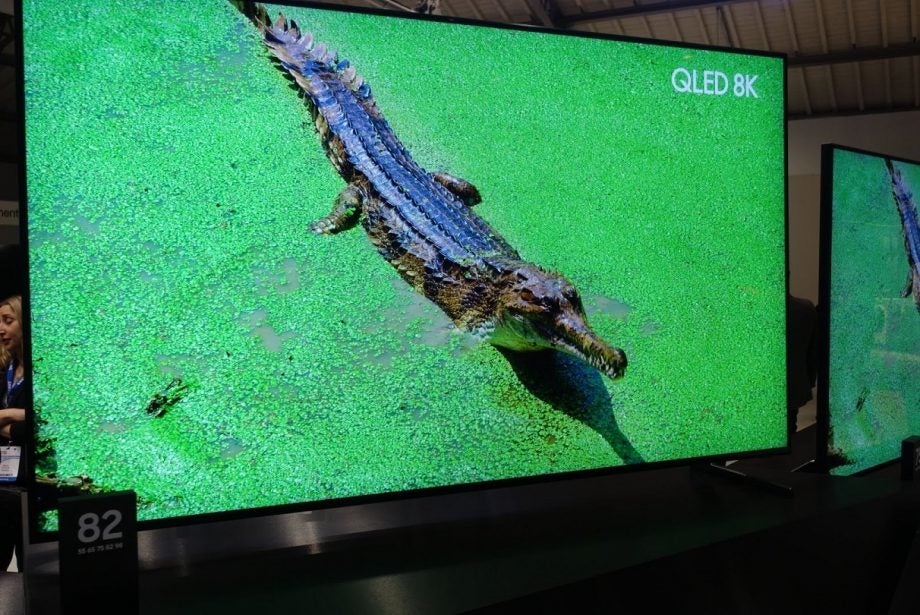Samsung QLED TVs will soon rival LG’s OLEDs in a major way

Samsung is claiming a new development to the QLED quantum dot technology, which could see it rival the colour precision of rival OLED sets from the likes of LG.
The company’s researchers have found a new way to commercialise true quantum dot LED panels that promise self-emissive diodes. That’s compared with the Samsung’s currently available QLED branded LCD sets that rely on filtered backlights.
The new development, which comes courtesy of using indium phosphide rather than toxic cadmium, now offers lifetime of up to a million hours, while boosting efficiency by more than 20% by cutting back on oxidation and energy leaks.
Overall, the big takeaway might be Samsung QLED screens being able to rival the ability LG OLED TVs to showcase those deep blacks and rich colours possible because each pixel is lighting itself.
Related: OLED vs LED LCD
The breakthrough from Samsung researchers, Dr. Eunjoo Jang and Dr. Yu-Ho Won has been published in the science journal Nature (via Zdnet).
In a press release, Samsung says: “By improving the structure of Quantum Dots, the team managed to hugely improve quantum efficiency, as well as extend the lifetime of the QLED element. The team found, at the conclusion of their study, that their method had improved quantum efficiency by 21.4% and increased the QLED lifetime to a million hours.”
Samsung plans to invest $11 billion by 2025 in order to build commercially-available true QLED screens and it appears this breakthrough will be instrumental in making that happen. Samsung says it already has 170 patents pertaining to the new quantum dot tech.
Related: Best TVs 2019
“Thanks to Samsung’s distinctive core material technology, we were able to work towards exploring the potentials of next-generation displays,” noted Dr. Jang. “Going forward, we are looking to expand the range of development of ecofriendly displays by adopting Quantum Dots in new structures.”
Samsung had previously built Super OLED TVs as far back as 2012, but walked away from fully commercialising the tech due to concerns over burn-in and short lifespan (via Engadget). This time it appears the company is on the right track.


